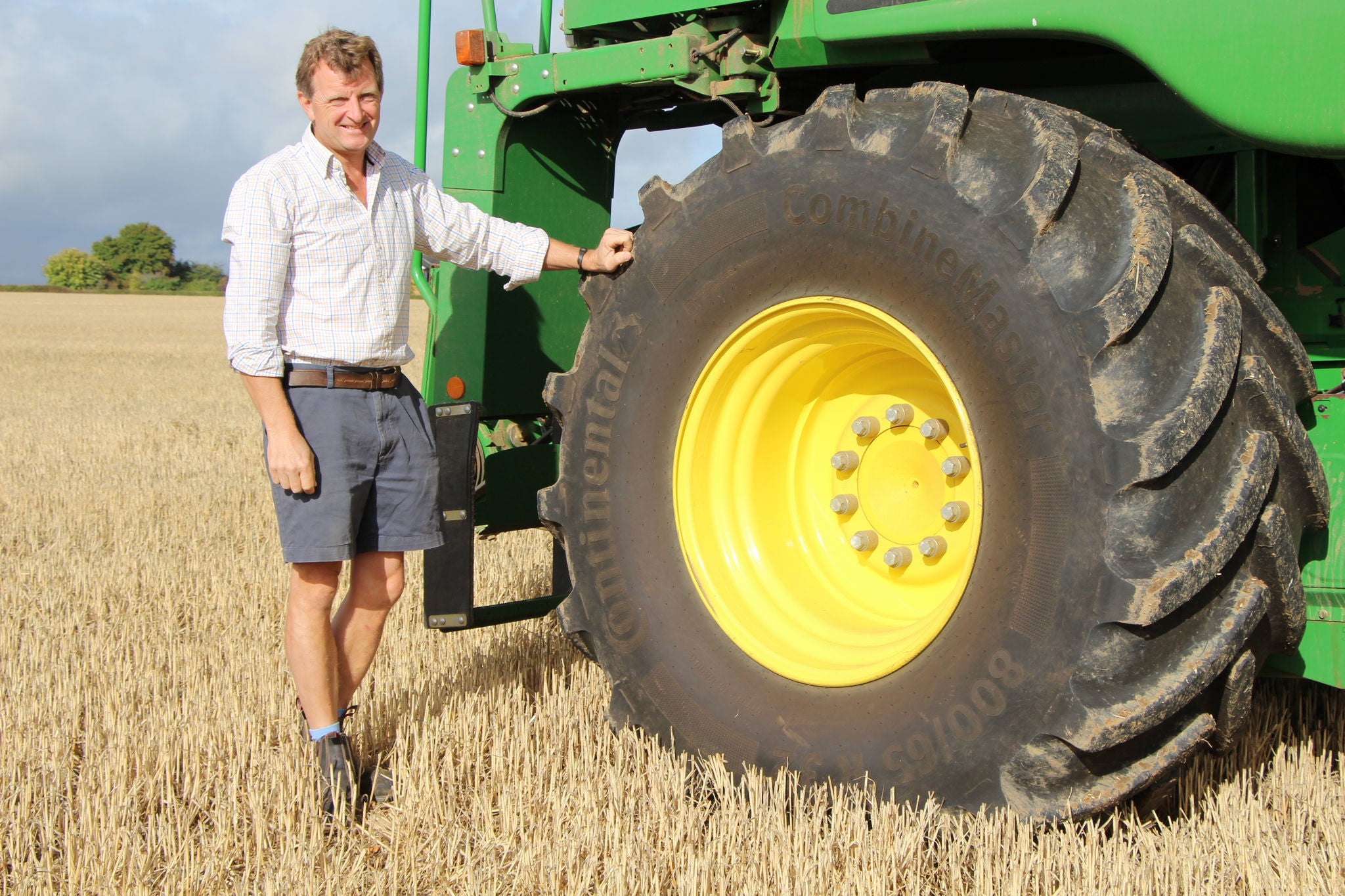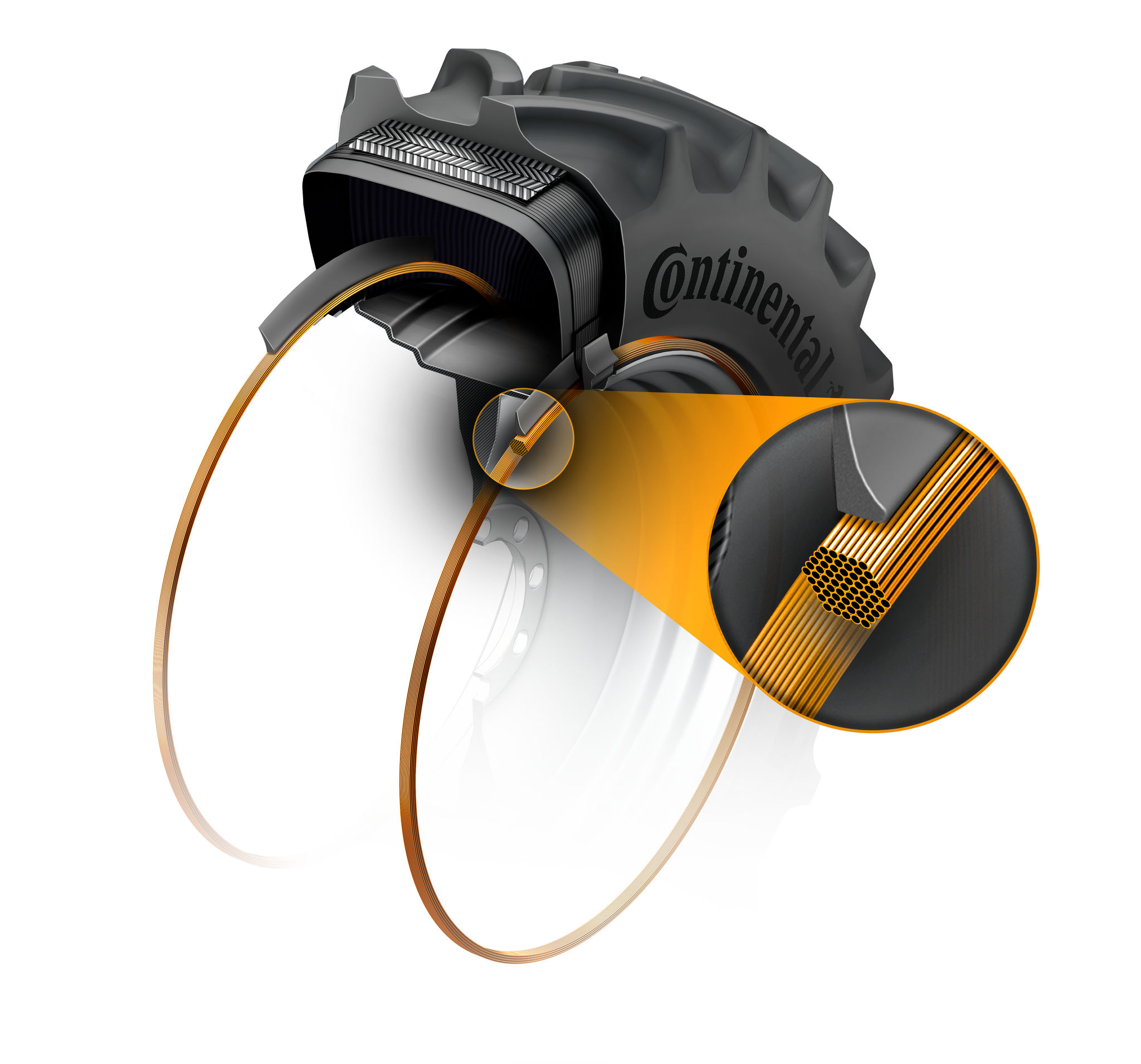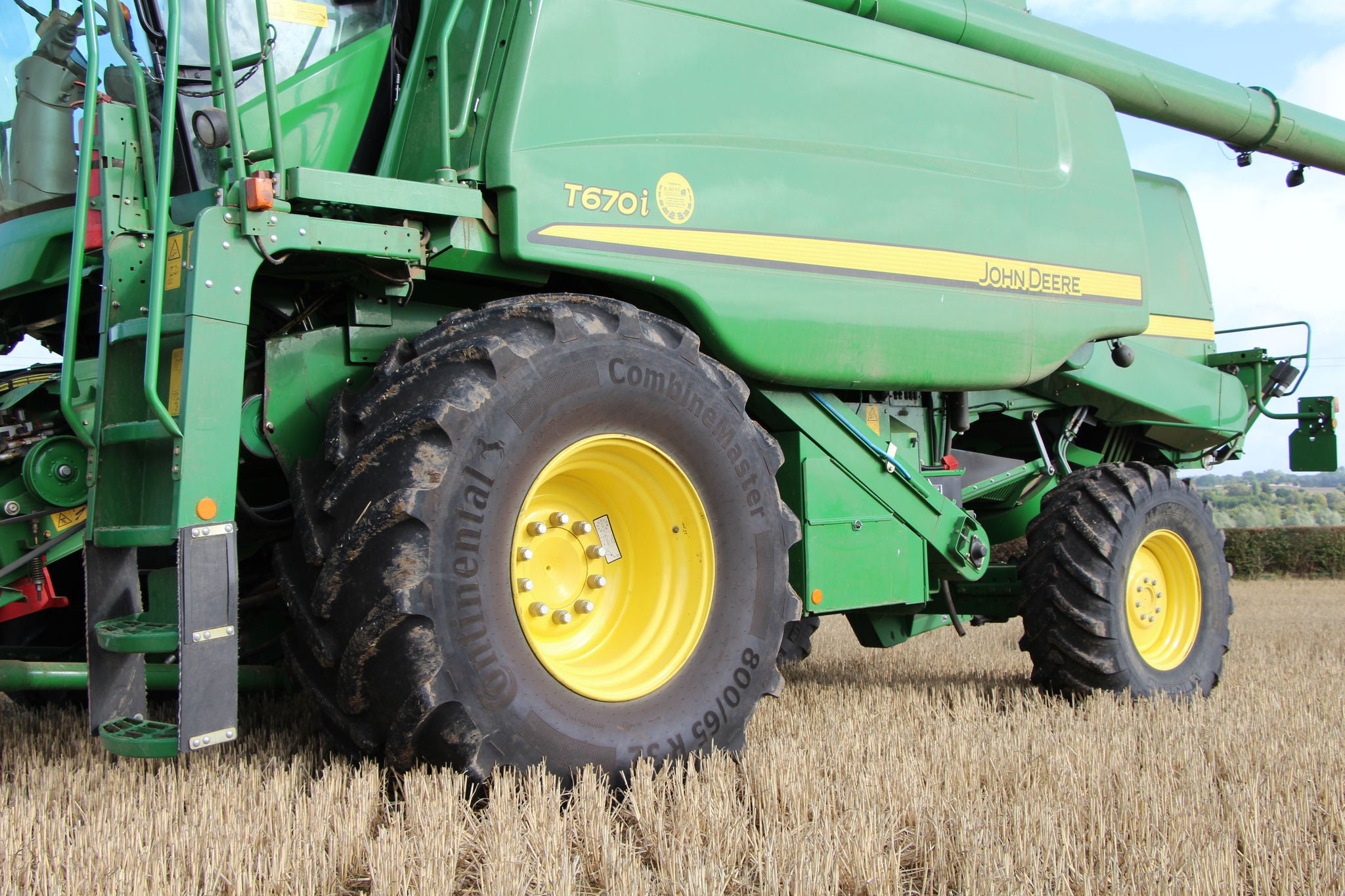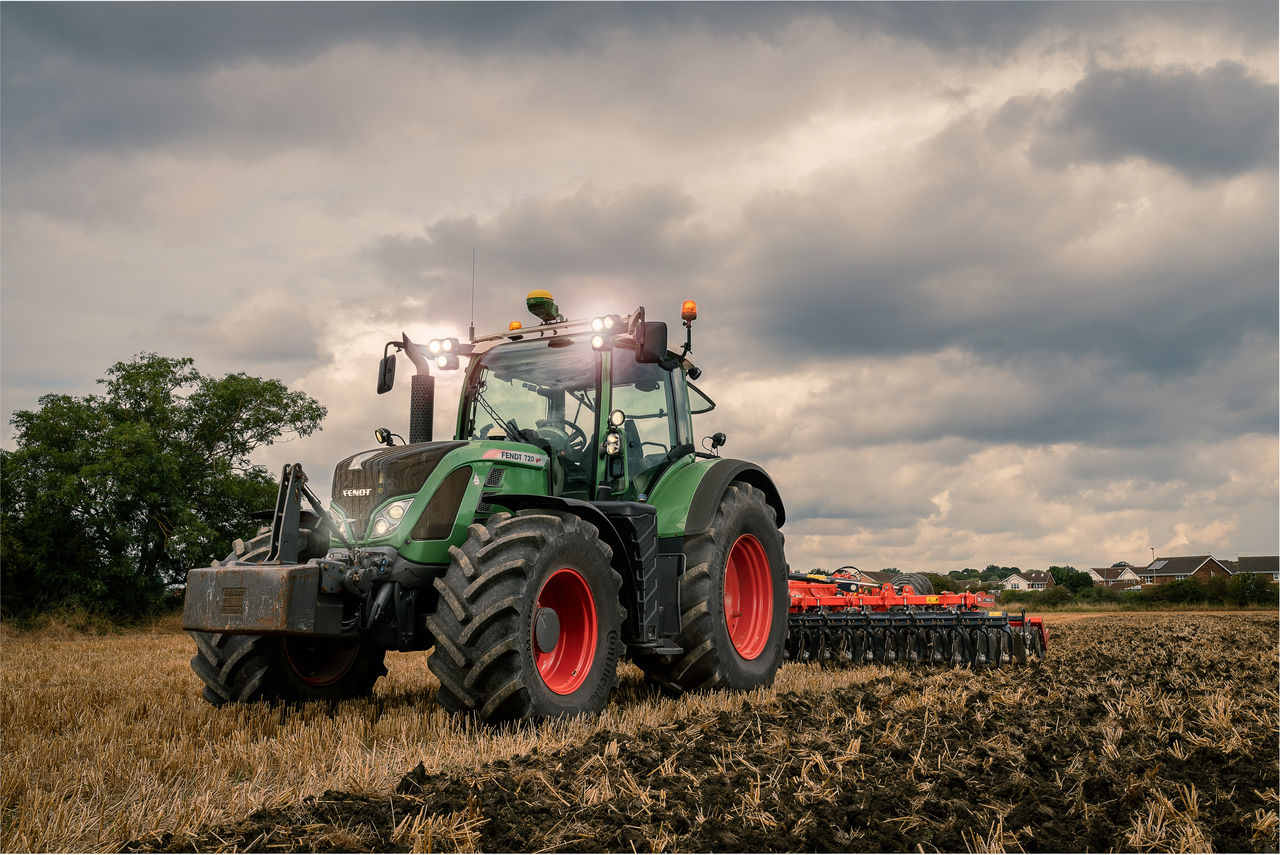# Customer Stories
Combine tyres help bring in the harvest
Andrew d'Angibau

Andrew d’Angibau has run John Deere combine harvesters for many years and until 2020 he had never had to replace a tyre. The front tyres on his 2015 John Deere T670i Hillmaster began to show worrying signs of stress with significant sidewall cracks appearing, so he chose to replace them with our CombineMaster tyres.
“I’ve never had to replace a set of combine tyres in my farming life, so when I saw the cracks, I was concerned about the safety of running the tyres for the rest of the season. I operate all the machinery on the farm, but also have seasonal help for harvest, and I needed the combine to be reliable and safe,” he explains.
The CombineMaster tyre he chose features a new hexagonal bead core and more flexible carcass, specifically designed to prevent cracking. The compact bead also enables the tyre to grip the rim more effectively at lower pressures, and when coupled with our N.flex carcass material it also offers greater flexibility.

“The tyres supplied on the combine had worn poorly and were close to causing a tyre failure. The cracks were most visible on the outside sidewall of the tyre. However, we only realised the full extent of the damage when we examined the inside sidewall which was significantly worse and made me concerned for operator safety,” he says.
Tyres on machines that work infrequently can crack as a result of not being used. The weight of the machine in a stationary position can cause flat spots, which, when the machine is used again, can cause cracking. That's why we have developed N.flex, a patented nylon, which sits beneath the rubber of the tyre to offer greater flexibility and reduce the occurrence of flat spots.
For Mr d’Angibau this has already proved a noticeable improvement, enabling the combine to ride more smoothly on the road and resist damage in the field. Following two harvests, the tyres have shown little sign of wear.

“We have 800 acres of combinable crops including wheat, oilseed rape and borage. The farm extends to 1200 acres in total, with the rest of the land planted with forage rye and maize to supply a local AD plant. It is demanding work for our machinery, but I was still surprised to see a pair of tyres damaged by three seasons of work,” he says.
He bought the John Deere machine in 2018 from Hunts of Salisbury. At three years old it showed little signs of wear. It was subsequently serviced yearly by local dealer Tuckwells. However, by the middle of the 2020 harvest the tyres were so badly cracked that he was forced to change them mid-harvest. He was able to keep the combine working locally but limited road work to reduce the risk of a tyre failure.
“I went to Anglia Farmers, the local buying group, and they were able to source the Continental tyres quickly. I only needed a pair of 800/65 R32 for the front as the rear tyres had not suffered the same fate.”
The tyres were easily available to Andrew because they formed part of an entirely new range of tyres from us. Since 2017, production of our tyres has taken place at a new production facility in Lousado, Portugal, which also has a dedicated agricultural tyre research and development unit.
“I wasn’t aware the tyres were a new design until Continental offered to visit the farm with weigh cells to make sure the tyres had been set up correctly. I was one of the first in the country to have bought CombineMaster tyres and the Continental agricultural tyre technicians were keen to understand more about the machine and the work I would be doing.”
“When Continental visited, they explained how pressure for load and application can affect the lifespan of tyres. The technicians adjusted the pressure in the tyres, and we noticed a significant difference.”
Andrew d'Angibau
Mr d’Angibau had done some research to check the tyres would be suitable for his John Deere Hillmaster spec machine. The Hillmaster adjusts to the angle of the combine, in relation to the ground it is working on, to keep the separation and threshing areas level and working at their optimum. This, he believed, could have had a role in the damage the previous tyres had sustained.
“When Continental visited, they explained how pressure for load and application can affect the lifespan of tyres. The technicians adjusted the pressure in the tyres, and we noticed a significant difference. There are several steep areas we farm, leading down into the valley, and the CombineMaster tyres have helped to provide increased stability when turning or cutting across the hills.”
To complement the Hexa-bead design of the front tyres, we have developed new VF specification tyres for the rear wheels of combines. The rear wheels experience significant changes in load as the combine is filled and emptied, but our VF technology helps to mitigate the stress rear combine tyres endure.
“It was explained to me that with VF I could carry 40% more load at the same pressure as a standard tyre or reduce the tyre pressure by 40% and still carry the same load. Whilst I do not need to replace the rear tyres yet, I will certainly be mindful to look at VF more closely should the time come to change the tyres again,” he concludes.
